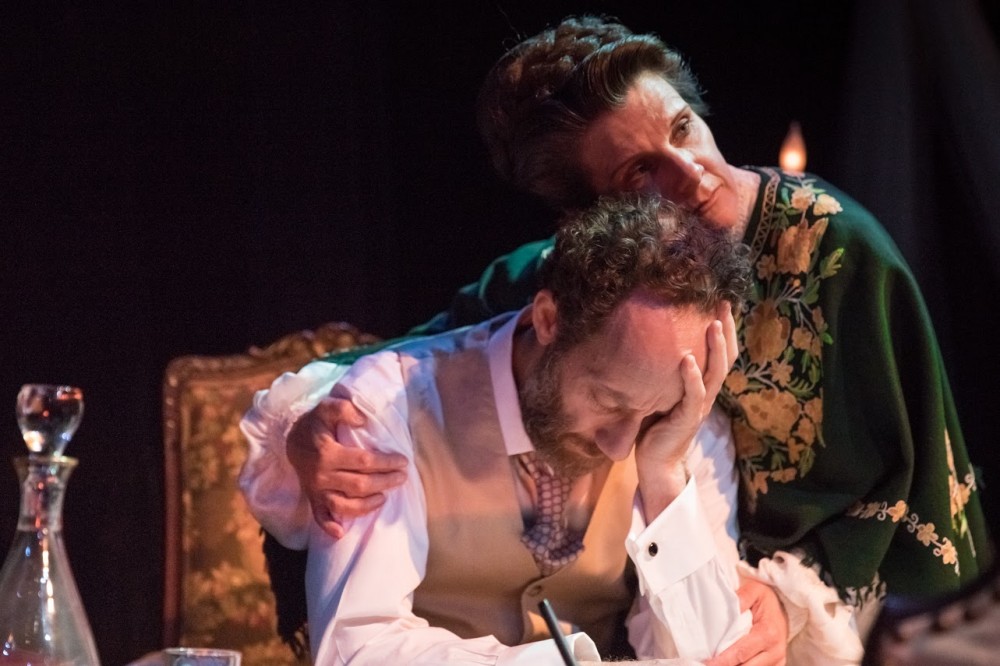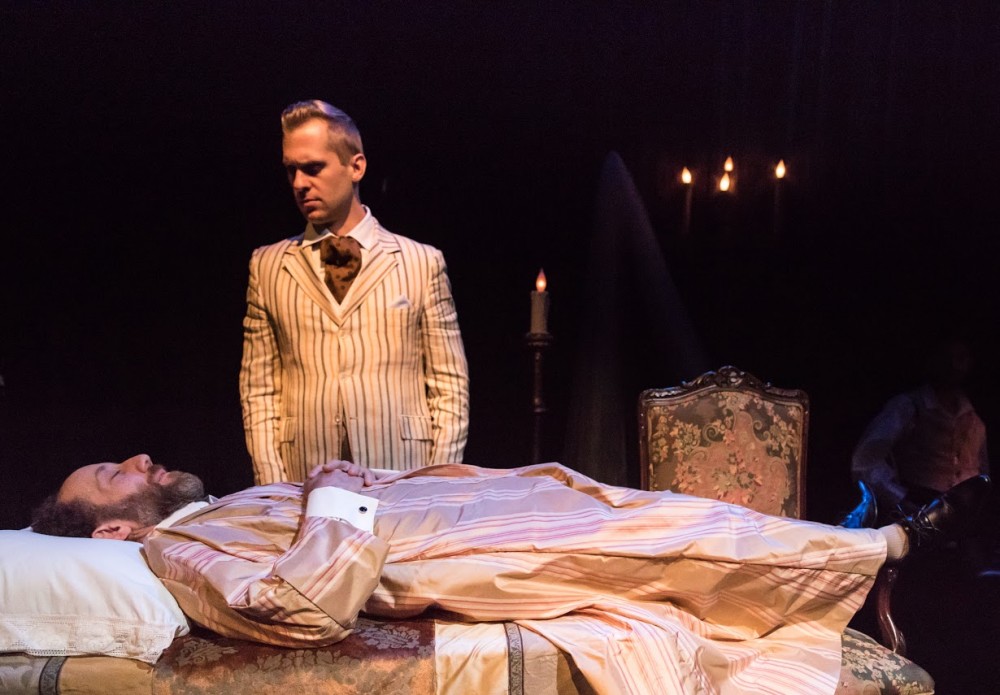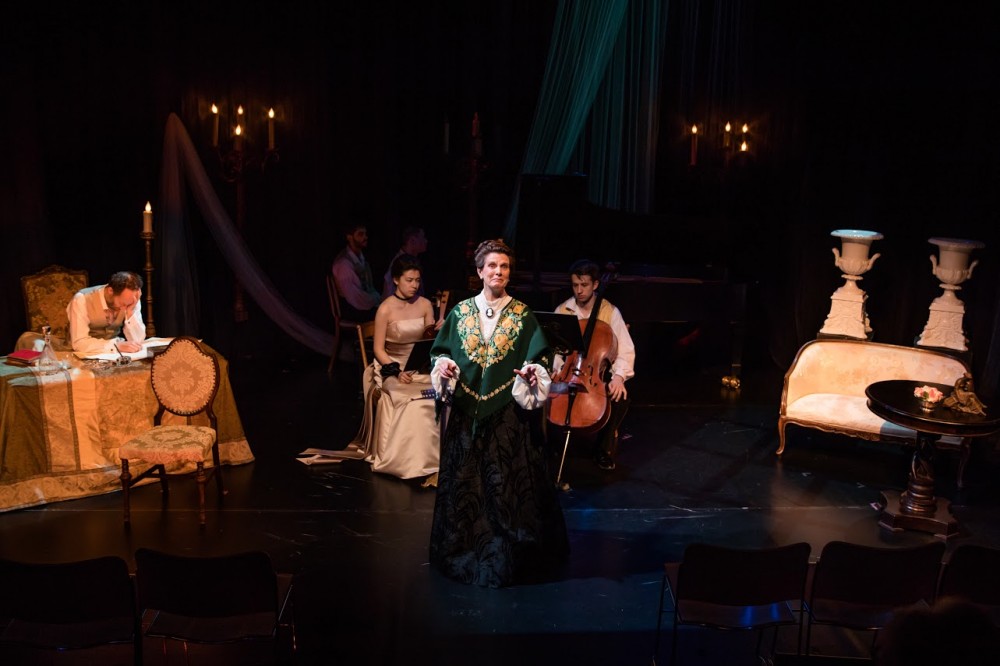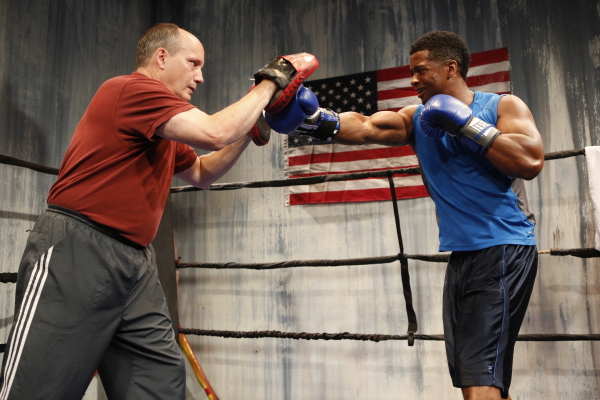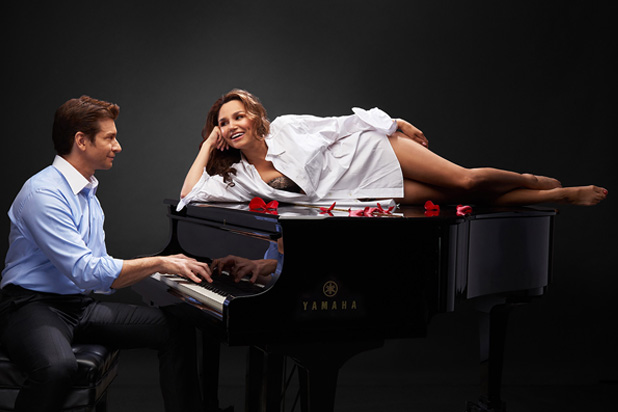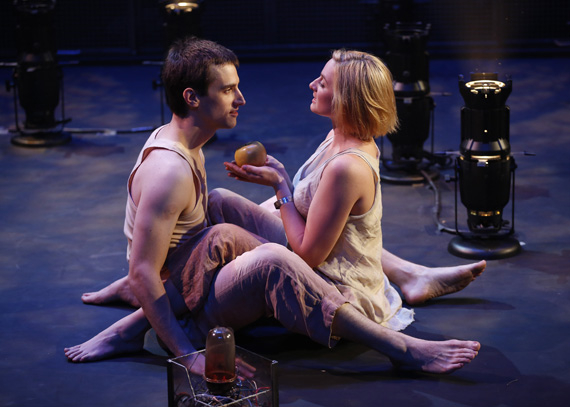By Beatrice Williams-Rude
This work is about the great Russian composer Pyotr Ilyich Tchaikovsky and his extraordinary 14-year relationship with his patron, friend and confidante, Nadezhda von Meck, whom he never saw. This was a passionate love affair of two disembodied souls that was expressed solely by letter. They bared their innermost secrets to one another despite, or perhaps because, of their not ever being together.
Tchaikovsky was a tragic figure. He was homosexual at a time and place where it was a criminal offense. Thus he entered into a marriage that would prove disastrous. Mme. Von Meck said she hated his wife because she made him so unhappy, but would have hated her a hundred times more had she made him happy,
Eve Wolf, who wrote Tchaikovsky: None But the Lonely Heart, has created a new genre. While bearing resemblances to Dear Liar, which uses the correspondence of George Bernard Shaw and Mrs. Patrick Campbell, it also has features of Kursalon (Vienna) offerings: a couple of singers, several dancers, and a chamber orchestra.
Eve Wolf melds the two art forms. Tchaikovsky, sensitively played by Joey Slotnick, who even looks like the famous likenesses of Pyotr Ilyich, sits on one side of the stage for much of the production, while Nadezhda von Meck sits opposite. Center stage are the virtuosic musicians, Ari Evan, cello; Ji, piano; and Stephanie Zyzak, violin. The music chosen is devilishly difficult and they meet all its demands.
While von Meck is most effectively portrayed by Shorey Walker, she had far less with which to work than did her splendid male counterpart, Joey Slotnick. Mme. Von Meck was a remarkable woman apart from her passion for Tchaikovsky and his music, but we are shown little of that.
Donald T Sanders was the superb director. The appropriate sets and costumes were by Vanessa James. The effective lighting was by Beverly Emmons.
Adrian Kramer, whose stirring rendition of “None But the Lonely Heart,” provided the core of the work, was also the embodiment of the young man for whom Tchaikovsky yearned. Daniel Mantei was the exquisite dancer, who reflected his homo-erotic fantasies.
As to the music: Most of the choices were more fitting for a chamber concert at Juilliard than for a theatrical-musical biography of arguably Russia’s greatest and most versatile composer. I wonder if the creators of this presentation asked themselves why Tchaikovsky remains such an enduring favorite of concert audiences. Which of his compositions fan the passions of devotees? One thinks of his sweeping, majestic symphonies, particularly the Fourth (dedicated to von Meck), Fifth and Sixth; his violin concerto, First Piano Concerto, glorious overtures including “Romeo and Juliet,” ballets (of which we heard two lesser-known snippets from “The Nutcracker”) and his operas. There’s also the symphonic fantasy “Francesca da Rimini” and the exquisite “Serenade for Strings.”
Surely “Souvenir de Florence” and “Capriccio Italien” could have been used in the Florence segment. Lenski’s aria from Eugene Onegincould have substituted for one of the less familiar songs, as could Tatiana’s letter aria from the same opera.
After the final curtain a patron was overheard saying, “It could use editing.” Not exactly. It could use a more representative selection of the music that makes Tchaikovsky popular.
The work is being presented by the “Ensemble for the Romantic Century” of which Eve Wolf is the founder and executive artistic director; Max Barros is co-artistic director; James Melo, musicologist; and Donald T. Sanders is the director of theatrical productions.
Photos: Shirin Tinati
Performances of Tchaikovsky: None But the Lonely Heart began Thursday, May 17, with the official opening Thursday, May 31. It will continue through June 17.
It is playing at the Ford Foundation Studio Theatre, Pershing Square Signature Center, 480 West Forty-Second Street (between Ninth and Tenth Aves, almost to the corner of Tenth), Manhattan.
Running time is two hours with intermission.


